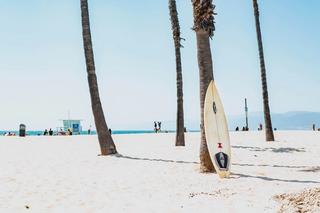For Your Safety
· Learn to swim.
· Ask a lifeguard about beach and surf conditions before swimming.
· Swim near a lifeguard and stay between the flags.
· Learn rip current safety.
· Watch your children in the ocean and on the beach.
o Lost children should be reported to a lifeguard immediately.
· Please leave space for beach patrol vehicles that are patrolling or responding to emergencies.
o Never set up your beach gear where there are vehicle tracks. Your cooperation is appreciated.
· Beat the heat, drink plenty of fluids, and be aware of the signs of heat emergencies.
o Heat exhaustion: cool-clammy skin, sweating, fatigue, dizziness, headache, muscle cramps, nausea, loss of coordination, impaired judgement, hyperventilation.
o Heat stroke: high body temperature, hot-red-dry skin, no sweating, difficulty breathing, rapid pulse, confusion, convulsions, loss of consciousness.
· Block the sun.
o Use sun protection with an SPF of 30 or higher.
o Wear protective clothing and accessories such as hats and sunglasses.
o Avoid sun exposure for babies up to the age of 1.
